Regulation
Ex SEC Official Blasts US SEC Amid Rari Capital Settlement Charges
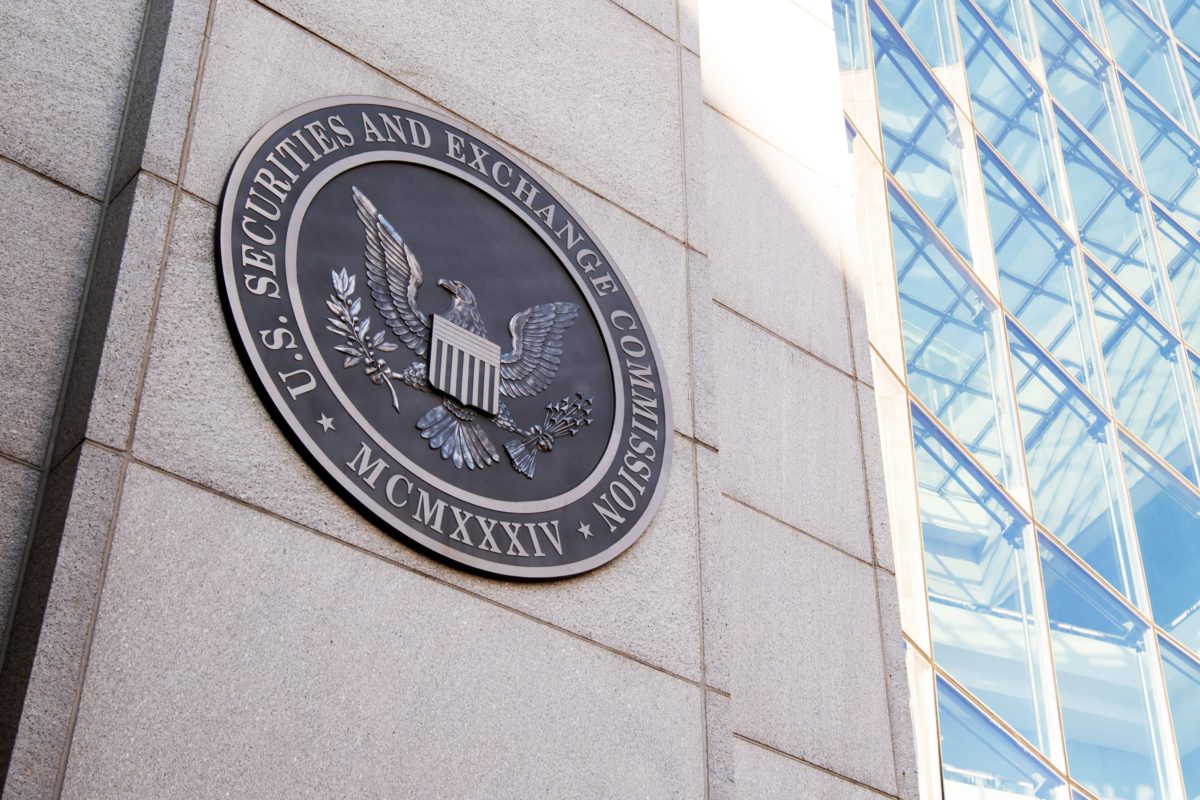
An ex-SEC official has raised concerns over the regulatory body’s approach to digital assets, coinciding with a recent settlement involving the decentralized finance (DeFi) platform, Rari Capital.
Michael Liftik, an ex SEC official and current partner at law firm Quinn Emanuel, emphasized the agency’s reluctance to issue clear guidelines for digital assets, while pursuing enforcement actions against firms in the sector. His remarks have sparked further debate on the SEC’s regulatory strategy.
Rari Capital Settlement with the SEC
The SEC has announced it had settled charges against Rari Capital and its co-founders. The DeFi platform, which offered yield-bearing services to crypto investors, faced accusations of misleading investors and engaging in unregistered broker activity.
Rari Capital’s Earn pools, marketed as being able to autonomously manage and rebalance investments, were found to require manual intervention, contradicting the firm’s claims.
The settlement also covered activities related to Rari’s Fuse pools, with the agency stating that the co-founders, Jai Bhavnani, Jack Lipstone, and David Lucid, were involved in broker activities without proper registration. At its peak, the platform held over $1 billion in assets. Though Rari Capital and its executives neither admitted nor denied the charges, they agreed to cease breaking securities laws in the future.
Ex SEC Official Blasts Approach to Enforcement
Liftik’s criticism of the U.S. Securities and Exchange Commission’s approach resonates with broader discontent within the crypto industry. He highlighted the agency’s preference for enforcement actions over rulemaking or providing clear guidance.
In addition, the ex-SEC Official noted that the agency’s reliance on a “whack-a-mole” enforcement strategy, where firms are targeted one by one, creates a difficult operating environment for companies trying to comply with evolving rules.
A memorable line from Michael Liftik, partner at law firm @quinnemanuel and a former senior @SECGov employee, from today’s @FinancialCmte hearing:
“The SEC has refused to issue new rules or meaningful guidance relating to digital assets and, at the same time, has engaged in… https://t.co/ZTCxly1ViG
— Eleanor Terrett (@EleanorTerrett) September 18, 2024
This criticism comes as the U.S. Securities and Exchange Commission continues to scrutinize decentralized finance platforms. Over recent years, several firms, both centralized and decentralized, have been charged with securities violations, reinforcing Liftik’s argument. The agency has made it clear that labeling a platform as “decentralized” or “autonomous” does not exempt it from securities laws.
Rari Capital’s History and Hack Incident
Rari Capital’s legal troubles were compounded by a significant exploit in May 2022, when its Fuse borrowing and lending platform was hacked, leading to the theft of $80 million.
As a result, the hack forced the firm to halt new deposits and begin winding down the platform, leading to its eventual shutdown.
In the agency’s settlement, the agency acknowledged the firm’s cooperation in returning performance-based fees to affected users and its remedial efforts in response to the hack. The settlement with Rari Capital Infrastructure LLC, which took over the firm after the hack, further stipulated that the company must refrain from violating securities laws in the future.
Growing Regulatory Divide in U.S. Crypto Legislation
The U.S. Securities and Exchange Commission’s latest actions come amid an ongoing debate in Congress over crypto regulation. Recent hearings have exposed a divide among lawmakers regarding how the digital asset industry should be regulated. A memo circulating in Congress suggests that some Democratic leaders view crypto as a partisan issue, labeling it as an innovation aligned with “extreme MAGA Republicans.”
Concurrent with the ex-SEC official statements, this political divide has heightened tensions as regulators and lawmakers attempt to craft comprehensive crypto legislation. Proposals such as the FIT 21 bill, which aims to classify digital assets and modernize securities laws, remain a focal point of debate.
Critics argue that the current regulatory environment under the Biden administration is stifling innovation, while proponents of tighter regulations advocate for stronger investor protections.
Disclaimer: The presented content may include the personal opinion of the author and is subject to market condition. Do your market research before investing in cryptocurrencies. The author or the publication does not hold any responsibility for your personal financial loss.
Regulation
US Senate Banking Committee Approves Paul Atkins Nomination For SEC Chair Role

The U.S. Senate Banking Committee has voted to approve Paul Atkins’ nomination for the role of Chair of the Securities and Exchange Commission (SEC). The vote, which took place on Thursday, passed with a narrow margin of 13-11, along party lines.
Paul Atkins, nominated by President Donald Trump, now moves one step closer to taking over the top regulatory position at the US SEC.
Senate Banking Committee Approves Paul Atkins Nomination
Paul Atkins’ nomination for SEC Chair has received approval despite sharp opposition from Democratic members of the Senate Banking Committee. The vote was entirely split, with Republicans supporting Atkins and all Democrats opposing the decision.
This partisan divide highlights the contentious nature of Atkins’ confirmation, which had been under scrutiny for several reasons.
The committee’s approval now clears the path for Atkins to proceed to the full Senate for a final confirmation vote. Given the Republican-controlled Senate, it is widely expected that Atkins will secure the necessary votes to take over the SEC leadership. With Republicans holding a 53-47 majority in the Senate, the confirmation process is anticipated to move forward swiftly.
This Is A Developing News, Please Check Back For More
Disclaimer: The presented content may include the personal opinion of the author and is subject to market condition. Do your market research before investing in cryptocurrencies. The author or the publication does not hold any responsibility for your personal financial loss.
Regulation
Kraken Obtains Restricted Dealer Registration in Canada

Cryptocurrency exchange Kraken has obtained a Restricted Dealer registration in Canada. The registration comes after completing a pre-registration undertaking (PRU) process with Canadian authorities.
The exchange has also announced the appointment of Cynthia Del Pozo as its new General Manager for North America. Del Pozo will oversee Kraken’s growth initiatives in Canada.
Kraken Completes PRU Process In Canada
Kraken’s Restricted Dealer registration marks the completion of a thorough pre-registration undertaking (PRU) process with Canadian regulators. The registration places Kraken under the supervision of the Ontario Securities Commission (OSC). This oversight ensures users have access to secure crypto products within a properly regulated local ecosystem.
According to the Canadian Securities Administrators (CSA), the Restricted Dealer registration is one of eight firm registration types in Canada. This particular classification is used for firms that “do not quite fit under any other category.” It also comes with specific requirements and conditions set by securities regulators.
Kraken’s regulatory achievement comes during a period of change in the Canadian crypto sector. Just months earlier, competitor Gemini exchange announced its departure from the Canadian exchange market by the end of 2024. This was a move that surprised many and raised questions about cryptocurrency regulation clarity in the country.
Kraken Introduces New Canadian GM
Del Pozo has joined Kraken to lead its Canadian operations as the new General Manager for North America. She has nearly 15 years of experience in corporate development, operations, and fintech consulting. Del Pozo will help to guide Kraken’s expansion across Canada during this important phase of crypto’s development in the region.
“Canada is at a turning point for crypto adoption, with a growing number of investors and institutions recognizing digital assets as a vital part of the financial future. I’m thrilled to join Kraken’s mission at this critical moment, and to lead our expansion efforts, ensuring we continue to serve our clients long-term with innovative and compliant products,” said Del Pozo.
In her role, Del Pozo will focus on strengthening Kraken’s regulatory relationships and also scaling the company’s presence throughout North America.
Del Pozo also commented on the registration achievement: “This Restricted Dealer registration is testament to the high bar Kraken has always set for consumer protection, client service, and robust security. We’re excited to continue expanding our world-class investment platform and to deliver innovative products that provide real-world utility to Canadians.”
The Exchange’s Continued Growth In Canada
Over the past two years, the cryptocurrency exchange has shown steady expansion in Canada while working through the PRU process with regulators. During this period, the exchange has doubled its team size and monthly active users.
According to the official blog post figures, the firm now has more than $2 billion CAD in total client assets under custody. Kraken has also increased support for some of the most popular cryptocurrencies. It provides several CAD spot trading pairs that enable Canadians to trade crypto without paying expensive foreign exchange fees.
According to Innovative Research Group’s 2024 Investor Survey, 30% of Canadian investors currently own or have owned cryptocurrencies. Likewise, a KPMG Canada survey discovered that 30% of Canadian institutional investors now have exposure to cryptocurrencies, which means widespread adoption across investor types.
Disclaimer: The presented content may include the personal opinion of the author and is subject to market condition. Do your market research before investing in cryptocurrencies. The author or the publication does not hold any responsibility for your personal financial loss.
Regulation
USDC Issuer Circle Set To File IPO In April, Here’s All

USDC issuer Circle is reportedly set to file its initial public offering (IPO) in April as part of the firm’s plans to finally go public. The stablecoin issuer is allegedly already working with top financial institutions to achieve this move.
Circle To File IPO In Late April
According to a Fortune report, Circle is looking to file its IPO in late April, although the listing period remains uncertain. The report noted that when a company files to go public, its shares usually begin trading four weeks later, indicating that the listing could occur in May. However, there is also a scenario where the IPO process could drag on for months.
The stablecoin issuer is reportedly working with investment banks JPMorgan Chase and Citi to achieve its long-anticipated IPO. The firm had previously tried to go public in 2021 under a SPAC arrangement with a shell company.
The US SEC failed to sign off on this arrangement back then, and the company eventually scrapped these IPO plans by the end of 2022 when the crypto exchange FTX collapsed and the broader crypto market experienced a downturn.
Revelation about Circle’s IPO plans comes just days after the stablecoin issuer partnered with NYSE’s parent company to explore USDC’s use in traditional finance (TradFi). Meanwhile, the USDC stablecoin recently launched in Japan following approval from the country’s regulator. Notably, USDC is the first and only global dollar stablecoin approved under Japan’s stablecoin framework.
An Easier Path Now For The Stablecoin Issuer
Circle will likely face less resistance for its IPO plans under the current SEC administration. Under acting Chair Mark Uyeda, the Commission has shown its willingness to work hand in hand with crypto firms, which was missing under Gary Gensler’s administration.
US SEC Chair nominee Paul Atkins has also shown his willingness to change the approach that Gensler’s administration adopted towards crypto firms. During his nomination hearing, the SEC Chair nominee promised to prioritize providing regulatory clarity for the industry.
Circle’s IPO listing would be the biggest since the top crypto exchange Coinbase went public in 2021. Interestingly, Coinbase owns an equity stake in the crypto firm.
The firm’s USDC is currently the second-largest stablecoin by market cap, only behind Tether’s USDT. The stablecoin industry is heating up as more financial institutions look to develop their own stablecoin.
Donald Trump’s World Liberty Financial recently revealed plans to launch its USD1 stablecoin, while asset manager Fidelity is also considering doing so.
Disclaimer: The presented content may include the personal opinion of the author and is subject to market condition. Do your market research before investing in cryptocurrencies. The author or the publication does not hold any responsibility for your personal financial loss.
-

 Altcoin20 hours ago
Altcoin20 hours agoFirst Digital Trust Denies Justin Sun’s Allegations, Claims Full Solvency
-

 Altcoin23 hours ago
Altcoin23 hours agoHow Will Elon Musk Leaving DOGE Impact Dogecoin Price?
-

 Ethereum22 hours ago
Ethereum22 hours agoWhy A Massive Drop To $1,400 Could Rock The Underperformer
-
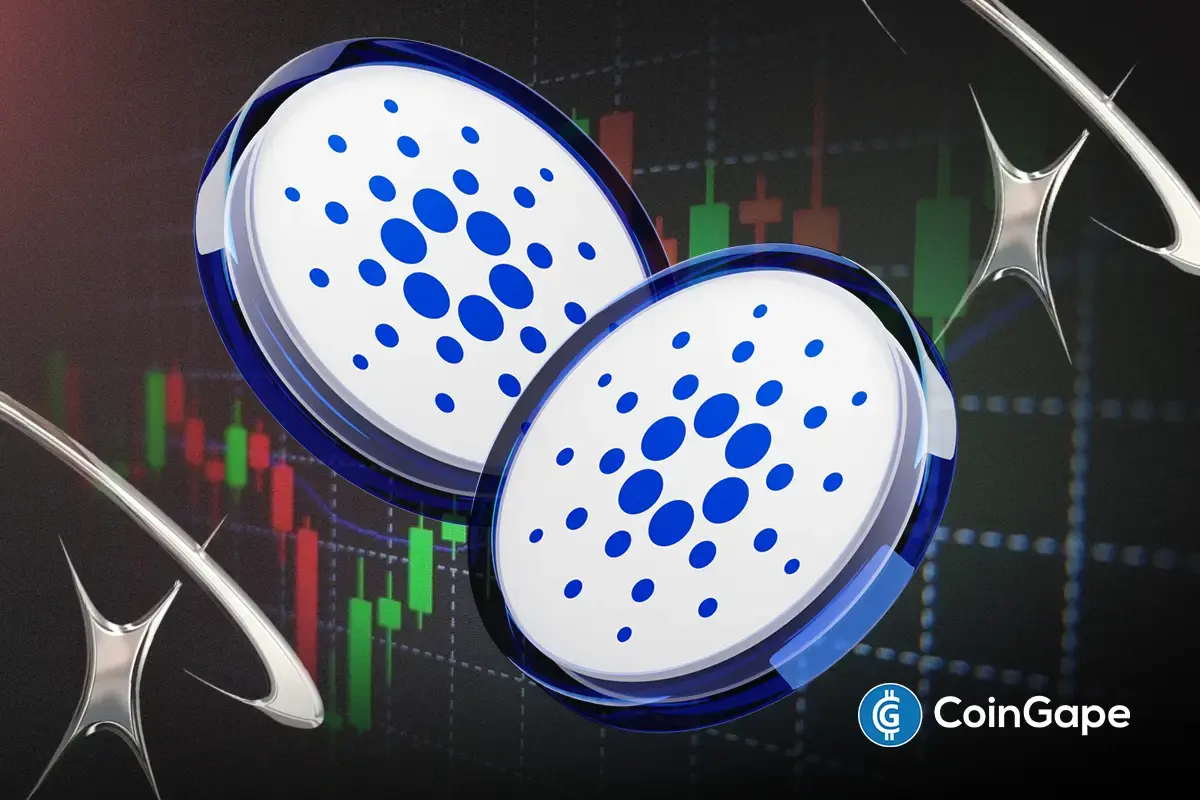
 Altcoin21 hours ago
Altcoin21 hours agoWill Cardano Price Bounce Back to $0.70 or Crash to $0.60?
-

 Ethereum24 hours ago
Ethereum24 hours agoWhales Dump 760,000 Ethereum in Two Weeks — Is More Selling Ahead?
-

 Market4 hours ago
Market4 hours agoBitcoin’s Future After Trump Tariffs
-

 Market13 hours ago
Market13 hours agoXRP Price Under Pressure—New Lows Signal More Trouble Ahead
-

 Altcoin13 hours ago
Altcoin13 hours agoAnalyst Forecasts 250% Dogecoin Price Rally If This Level Holds





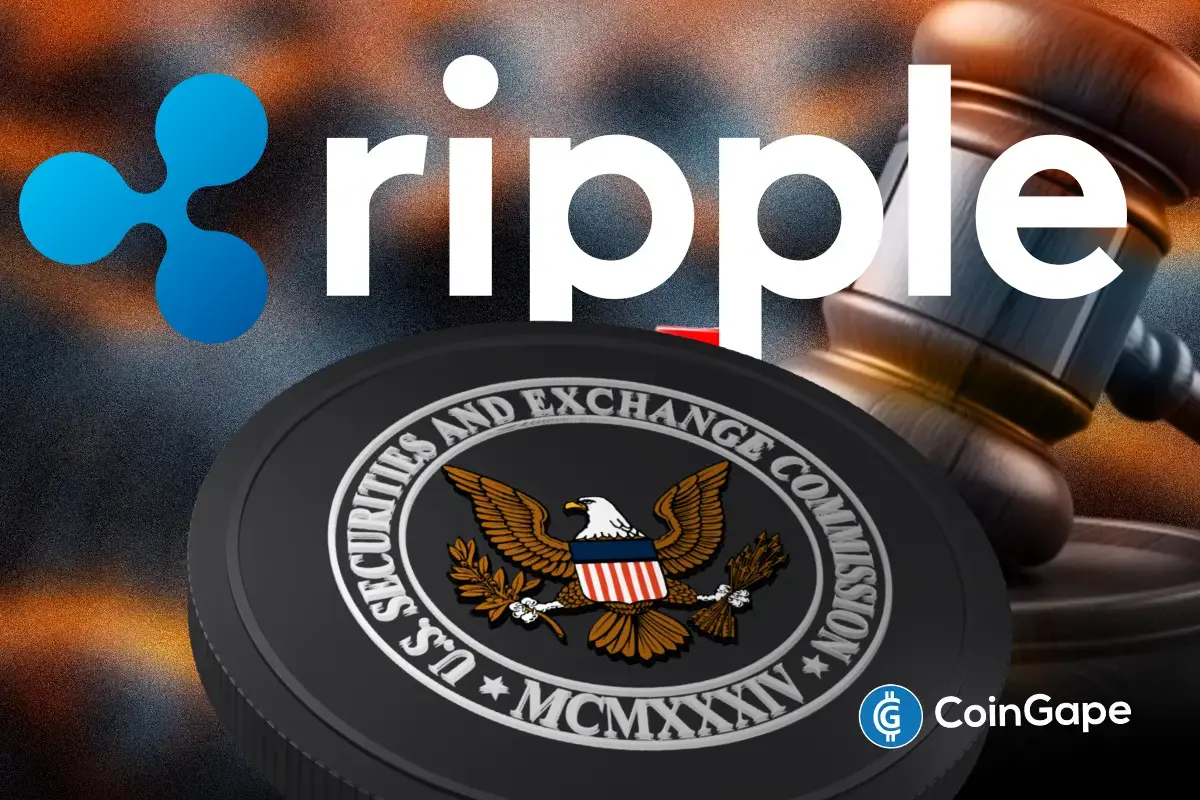
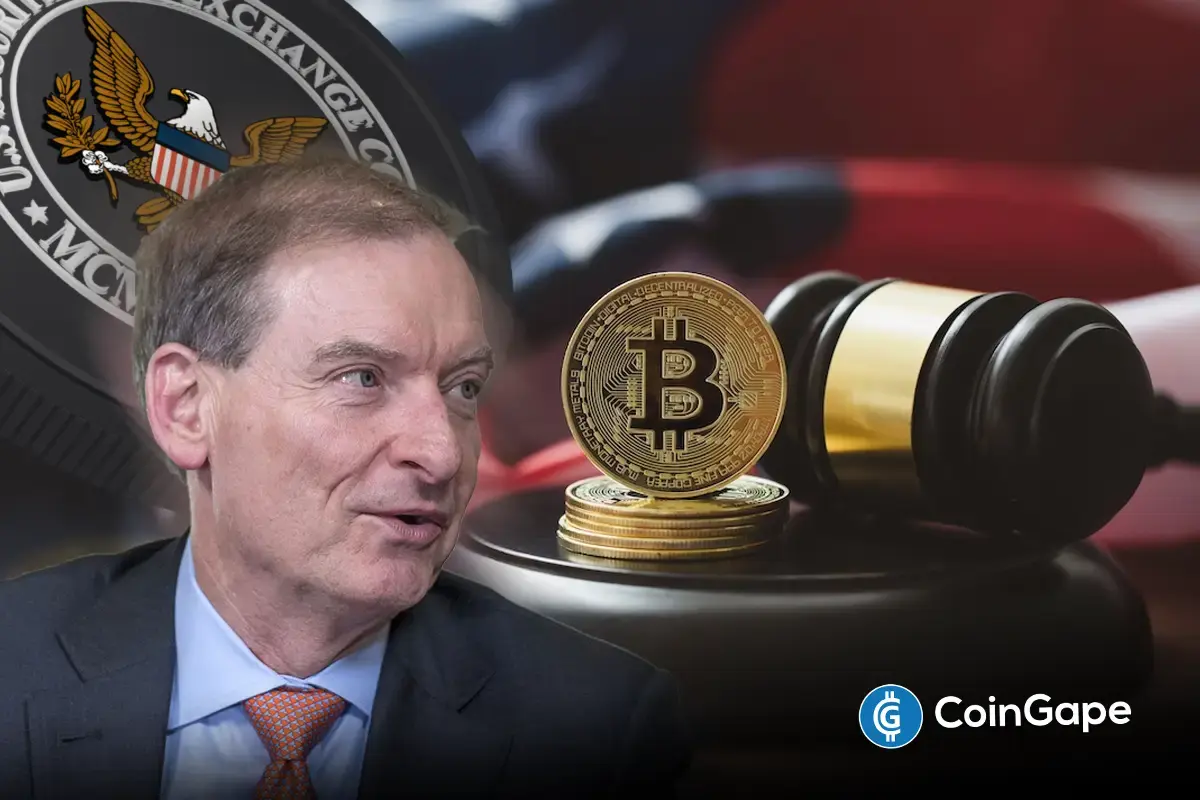
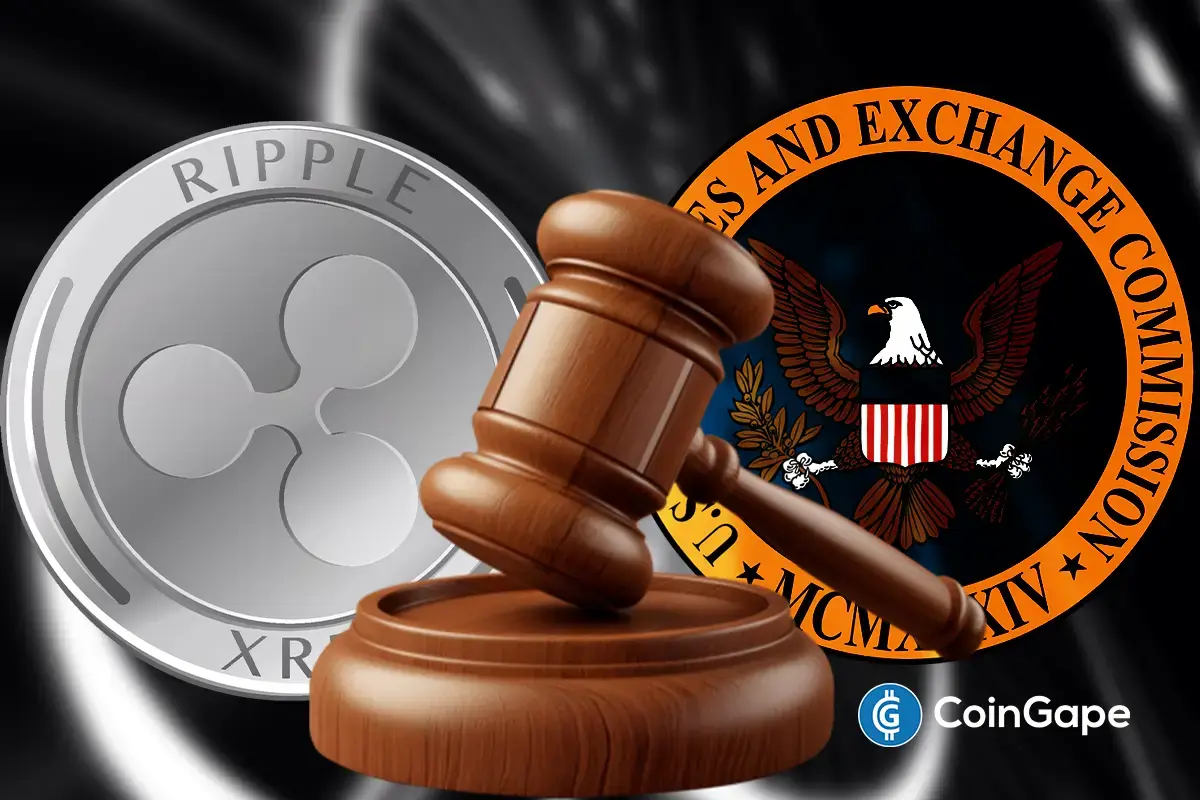










✓ Share: